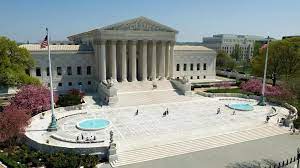
The US Supreme Court recently overturned a long-standing practise intended to increase educational chances for minorities by outlawing the use of race and ethnicity as criteria in university admissions. The admissions policies of Harvard University and the University of North Carolina were found to be in violation of the equal protection clause of the US Constitution’s 14th Amendment by the US Supreme Court.
The programme was overturned by the Supreme Court on a 6-3 vote, a result that was applauded by Republicans, including former President Donald Trump, and denounced by Democrats. Three justices disagreed, but the conservative majority of six justices supported the prohibition.The ruling slams affirmative action laws, which were developed during the Civil Rights Movement and intended to rectify previous prejudice, in the heart.
Chief Justice John Roberts declares affirmative action as unconstitutional discrimination, breaking a policy that aimed to enhance educational opportunities for minorities. Six justices support the prohibition, with three dissenting, forming a conservative majority.
What led to this decision?
The decision was prompted by a lawsuit filed by the activist group Students for Fair Admissions against Harvard University and the University of North Carolina (UNC). The lawsuit alleged that race-conscious admissions policies disadvantaged Asian American applicants who were equally or better qualified.
Impact on Universities The ruling allows universities to consider an applicant’s background, including experiences of racism, when evaluating applications. However, the decision restricts significant consideration based on an applicant’s race or ethnicity, deeming it as racial discrimination.
Conservatives viewpoints
Affirmative action is unfair and no longer required, according to conservatives, who claim that the progress made by Black Americans and other minorities justifies the ruling. The ruling was praised for being fair and equal by Republican US House Speaker Kevin McCarthy and former President Donald Trump.
Asian American Perspective
Kenny Xu from Students for Fair Admissions, one of the ruling’s supporters, asserts that it will end discrimination against Asian American students. Xu emphasized the unfairness of admission standards, where Asian Americans frequently had to meet greater standards than people of other races.Progressive concernsProgressives expressed disappointment with the ruling, as it represents another setback following the court’s overturning of the landmark Roe v. Wade decision on abortion rights.















